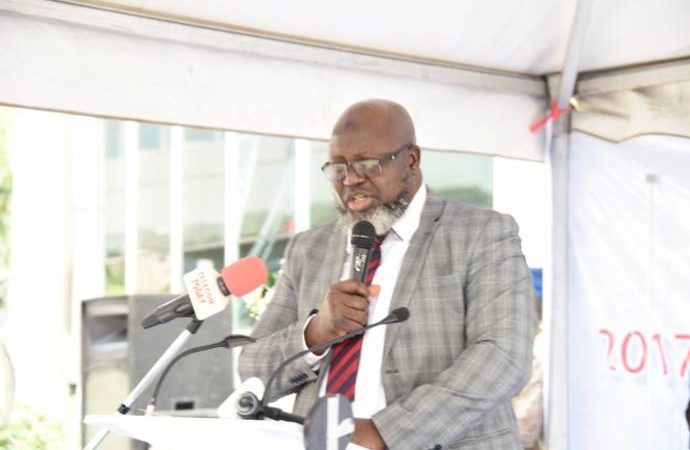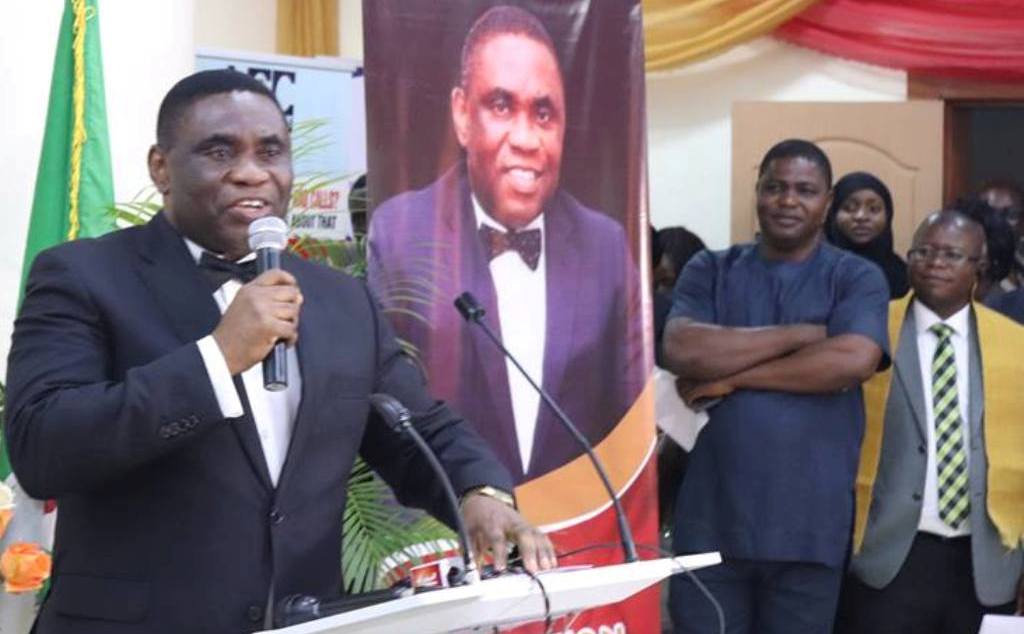The Federal Government through the Tertiary Education Trust Fund (TETFund) allocated a total of N727,225,862,128.86 billion worth of investment in critical areas of infrastructure development in the Nigerian tertiary institutions.
Malam Adamu Adamu, Minister of Education, disclosed this during the Sixth Edition of the Ministerial Press Briefing in Abuja, saying that the intervention was for public universities, polytechnics and colleges of education from 2015 till date.
Adamu noted that the intervention was specifically for physical infrastructure, project maintenance, Information and Communication Technology (ICT) support, entrepreneurship, library development, special high impact projects, research, academic staff training and development among others.
“Our focus for today’s briefing is on Federal Government’s intervention in critical areas of tertiary education in the life of the Buhari administration in the last four years.
“During the period under review, the Federal Government through the instrumentality of the Tertiary Education Trust Fund (TETFund) allocated a total of N727, 225,862,128.86 billion worth of investment in critical areas of infrastructural development in our tertiary institutions.
“Especially in physical infrastructure, project maintenance, Information and Communication Technology (ICT) support, Entrepreneurship, Library development and special high impact projects, Academic Staff Training and Development, and Research among others.
According to him, a breakdown of the funding efforts by the Federal Government indicates that in 2015, each public university both Federal and States, was allocated N337 million.
He said when multiplied by 74 universities that benefited; it gave the total allocation to public universities to N24.93billion for that year.
“In 2016, each public university was allocated N1,009,410,000 billion multiplied by 74 institutions; it brings the total allocation to public universities to N74,696,340,000 billion for year 2016.
“In 2017, each public university was allocated N659, 150,000 million multiplied by 74 universities; you have the total allocation to public universities to N48, 777,100,000.00 billion for 2017.
“In 2018, each public university in the country was allocated N785, 823,700 million multiplied by 74 universities; it gives the total allocation to public universities to N58, 150,953,800.00 billion for year 2018’’.
The minister explained that the total allocations to public universities during the period under review stand at N206, 562,393,800 billion.
Similarly, Adamu said that in 2015, 50 Polytechnics were allocated N250, 000,000 million each amounting to N12.5billion (Twelve billion, Five Hundred million naira) only.
He also said, in 2016, the amount of N691, 632,000 million was allocated to each 54 Polytechnics; amounting to N37, 348,128,000 billion for all in that year.
“ In 2017, N450, 800,000 million each was allocated to 54 Polytechnics, amounting to N24, 343,200,000 billion.
“While in 2018 54 Polytechnics got N536, 703,502,000 million each; amounting to N28, 981,989,108 billion’’.
He said that the total allocation to Polytechnics during the period under review was N103, 173,317,108 billion.
Adamu, however, noted that states’ universities got a total allocation of N74, 620,416,900 billion.
“Meanwhile, for the Colleges of Education, the total allocation during the period, stood at N101, 631,304,500 billion.
He explained that a further breakdown showed that colleges of educations got N12,485,000,000 billion in 2015, N37,348,135,000.00 billion in 2016, N23,743,500,000 billion in 2017 and N28,054,669,500 billion in 2018.
The minister, therefore, expressed the concern of the government over the lack of accountability in some of the tertiary institutions.
He reiterated that that the Federal Government would not fold its arms to watch public educational institutions funded from the public purse to flout the laws of public accountability.
“I want to put every stakeholder in this regard on notice, that in the coming weeks, the Federal Ministry of Education under my watch will roll out visitation panels to all tertiary institutions to deal with this ugly phenomenon,” he said.


